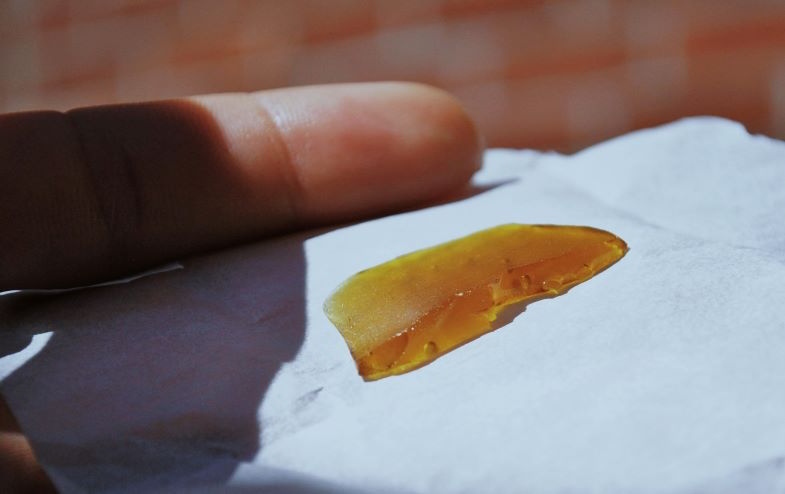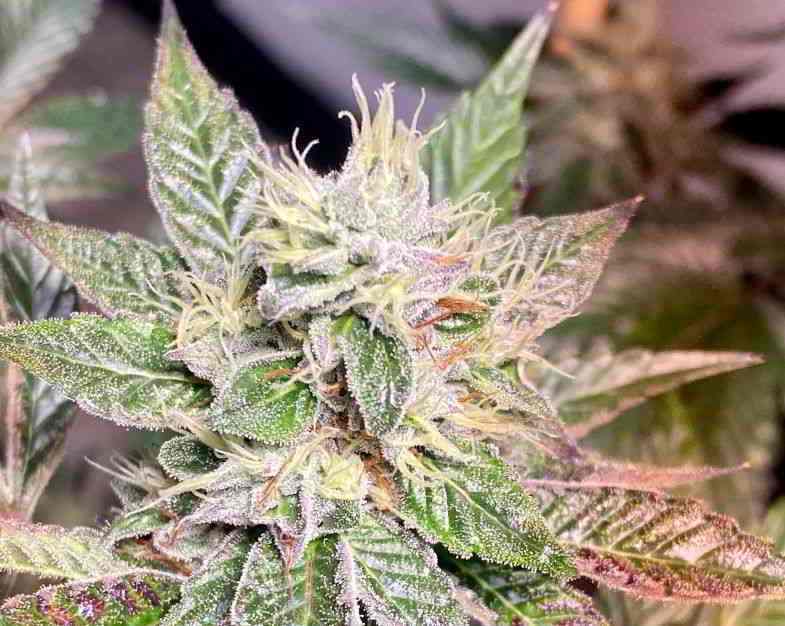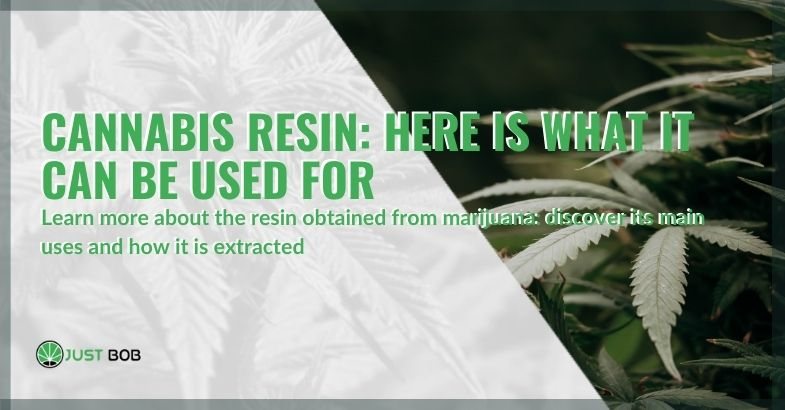Modified on: 23/11/2023
Learn more about the resin obtained from marijuana: discover its main uses and how it is extracted
When legal hemp plants reach full maturity, many trichomes begin to develop on the surface of their calyxes and the CBD flowers: they are responsible for resin production.
The resin of cannabis is the sticky substance (resembling honey) that is used to produce legal hashish and many other products and that, at the same time, is indispensable for the growth and defense of hemp plants.
Curious to know more?
Here you can find out what the primary uses of resin are and how it is extracted.


Resin: what it is, and why do plants produce it?
When it comes to discussing legal marijuana, the real star of the conversation is resin — also called ‘pollen’ — the valuable substance from which CBD is extracted and many derivatives (such as hashish and kief) are produced.
In nature, cannabis plants produce this substance to defend themselves against parasitic attacks, discourage raids by possible herbivorous predators, and protect themselves against mold.
But that’s not all: resin production also serves the purpose of defending hemp plants from violent gusts of wind and sunlight.
Given its many properties, legal cannabis resin has also become one of the primary goals of cannabis growers.
By taking good care of the growth of marijuana plants and the quality of trichomes, it is also possible to obtain a good quantity of resin characterized by the presence of highly fragrant terpenes.
But how is this product extracted?
Read also: Buying CBD in The UK: Indica vs Sativa vs Ruderalis: your choice!
How to extract resin from hemp
There are several methods of extracting resin from hemp plants: some are simpler and can be done practically anywhere. In contrast, others are more complicated and can only be done in the laboratory.
One of the best-known methods is Ice Water extraction: by immersing the buds and leaves in a container filled with water at a temperature of 2 °C or less, the trichomes can be isolated. The trichomes detach themselves and remain in the water, after which they can be collected and combined.
The use of carbon dioxide is also widespread: this method of extraction can only be carried out in a well-equipped laboratory and allows large quantities of high-quality resin to be obtained.
Some chemical solvents are also used in the laboratory, among which n-butane gas stands out. This system allows a clean and pure product to be obtained, as there is no risk of extracting superfluous substances (such as chlorophyll). However, the product that can be obtained is not a lot.
Among the more “home-made” methods is Dry Soft extraction. This method involves placing the plant components in a large mesh bag (after placing them in the freezer for a few hours) and allowing the trichomes, which have detached from the tops, to come out of the bag.
Lastly, the Rosin Tech method: using a hair straightener — or something similar — to encourage the release of the resin in liquid form, which is then placed on a sheet of greaseproof paper for use.
But speaking of uses, what are the main ones?


CBD resin: how to use it?
In countries where the use of light cannabis and its derivatives is permitted, the resin extracted from the plant is used in different ways and for other purposes.
CBD, which is contained in different percentages in the resin obtained from cannabis, appears to have several positive effects on the human body:
- it relieves pain and inflammation
- it has a relaxing and calming effect;
- it helps insomniacs to sleep;
- it is a panacea for various skin conditions.
Let’s take a closer look at how marijuana resin is used.
Concerning dosage, as with CBD oil, an eyedropper is usually used: in this way, it is possible to extract minimal doses of resin and not exceed the quantities of a very concentrated product.
The resin can be taken orally by dispensing the pure product directly under the tongue to be absorbed quickly by the mucous membranes; otherwise, it can be introduced into the body through food and drink.
The first method is the one that allows you to benefit from the effects of the substances contained in the pollen most rapidly.
However, if the resin is taken through coffee or other hot drinks, the action time of CBD and the other substances contained in the resin is lengthened.
Resin is also often used on the skin.
The topical application of this product is intended to alleviate various problems, such as dermatitis, psoriasis, rushes and more.
Of course, like the inflorescences, marijuana resin (or pollen) is also taken in the form of smoke, but unlike CBD oil, it cannot be vaporized due to its consistency.
It is essential to remember that CBD resin can only be used in countries where it is legally allowed, and it is best to seek medical advice before doing so.
Read also: What is autochthonous cannabis and what are the best-known varieties
To conclude
The cannabis resin is a product with a thousand properties.
Apart from being essential for plants, due to its high CBD content and aromas, the resin is also highly valued by humans.
Suppose you also love the qualities of CBD cannabis and have therefore decided to collect its inflorescences and some of its derivatives. In that case, we invite you to take a look at our online shop Justbob.shop: a wide choice of products, competitive prices, and fast, anonymous delivery are available to you every day.
Visit our online CBD cannabis shop.
We are waiting for you!









